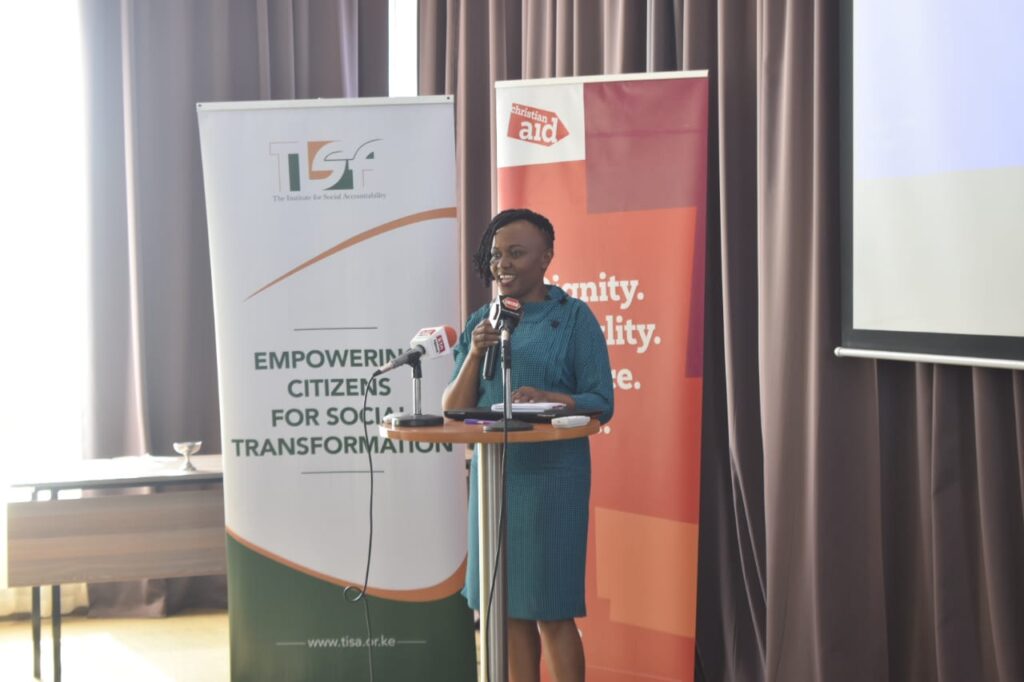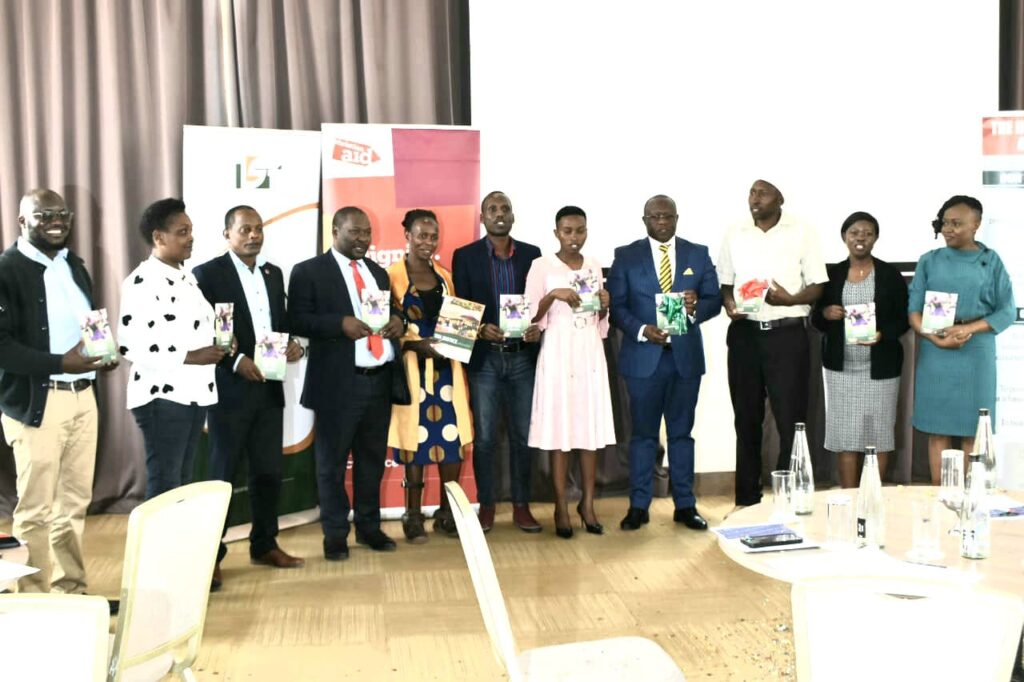TISA, Christian Aid unveil Tax Justice Study on the Impact of the Frameworks on Informal Traders and MSMEs

The Institute for Social Accountability (TISA) has launched its report “Impact of Tax Frameworks on Informal Traders and MSMEs” in Nairobi County which poked holes and concerns on the new tax frameworks proposed by the government.
Speaking during the launch, Diana Gichengo, National Coordinator, TISA noted the comprehensive study will guide the next phase of tax justice and not only taxation issues in the country.
She reiterated that taxation is an issue of justice and patriotism.
“We want a state that gives citizens dignity and social economic development, and not a police state. The revenue assistants deployed by KRA are conducting their operations in a paramilitary manner,” she reacted.
The report examined the implications of Kenya’s current taxation system on MSMEs, women, and youth and to recommend appropriate tax measures that address economic justice.
“Women encounter disproportionate burden of tax & regulatory compliance compared to their male counterparts. Businesses owned by women tend to operate in smaller sectors & are often informally registered making it harder for them to comply tax regulations,” the report stated.

In addition, the report revealed that Kenya’s tax system has led to disproportionate and unfair taxation, particularly affecting the informal sector due to the growing reliance on indirect taxes which account for nearly 62 per cent of taxes as reported by the Kenya Revenue Authority in the financial year 2021/ 2022.
Speaking on the same, Janet Ngombalu, Country Director, Christian Aid averred that tax should be equitable, transparent and accountable.
“We call for justice in all levels of government and across all Kenyans,” she noted.
The director said they remain committed in working with all partners to realise accountability.
In addition, she noted that Christian Aid and all economic partners are ready to continue engaging the government in tax issues.
In his remarks, Owen Baya, Member of Parliament Kilifi North and Deputy Majority Leader in National Assembly lauded the fact that taxation has taken centre-stage with many citizens actively involved in public participation.
“Many citizens are now aware of the Finance Bill. The public is keen on whatever is happening in the Parliament and they want to be part of the process,” he noted.
On the flip side, he challenged the public and civil society organisations to demand for accountability which mostly leads to overtaxation.
“Accountability is the problem with our Tax system and it is also good to note that, if things go wrong in the County government’s, it will definitely go wrong in the National government,” averred the law maker.
Peter Orero, Member of National Assembly, Kibra Constituency warned that no country has ever progressed by overtaxing its people.
He instead urged County and National governments to look for alternative options in spurring the country’s economic growth.

The report was conducted with support from Christian Aid Kenya with a central focus exploring mechanisms for strengthened citizen engagement towards enhancing domestic resource mobilisation through poor tax policy reforms.
The study reviewed existing tax laws and initiatives to assess how the tax ecosystem reasonably accommodates MSMEs, youth, and women traders in the informal sector, and identified best practices in businesses, and recommendations on key advocacy proposals and targets aimed at improving tax justice in Kenya.
In Kenya, the informal sector which is mostly owned by youth and women represents a significant share of the economy and these businesses hold immense potential for economic justice.





